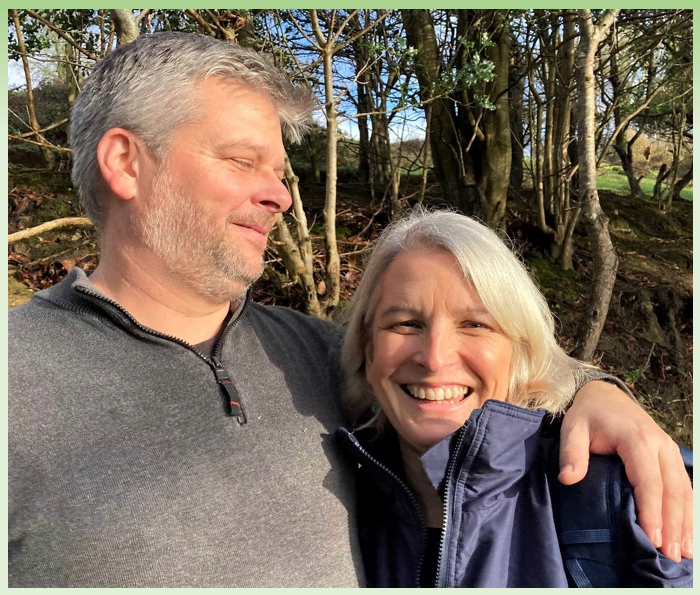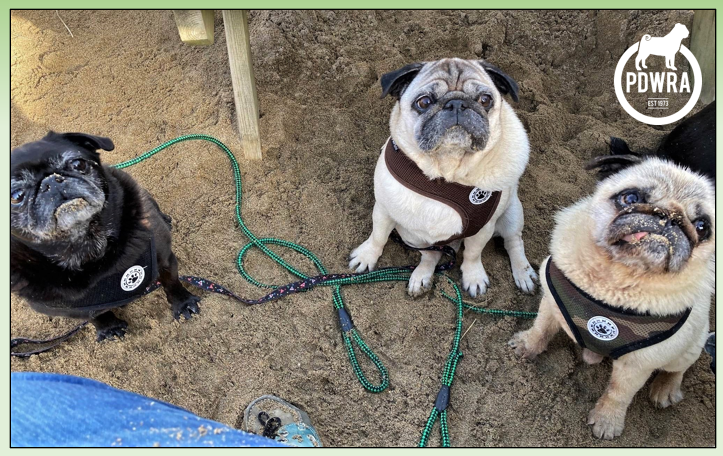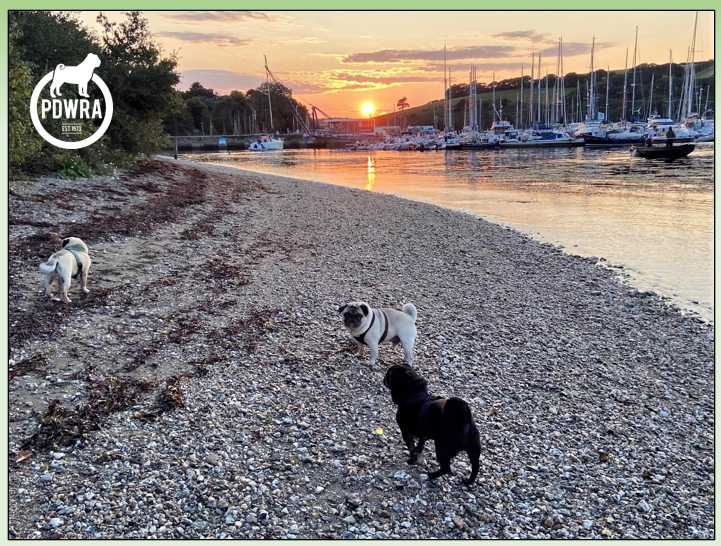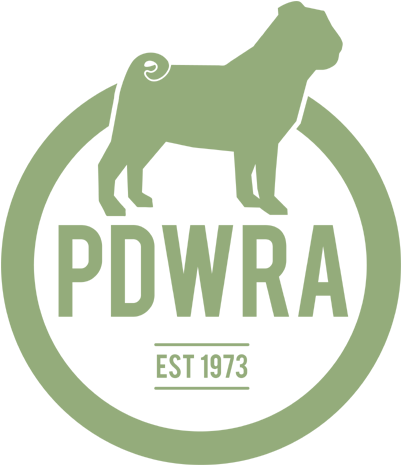Interview with Jane, Voluntary Area Coordinator for Cornwall, Devon and Dorset in the South West.
Our Voluntary Area Coordinators (VACs) provide an essential service to the charity, coordinating and running the process around taking in surrendered pugs, home checking new adoptive families and matching pugs to their adoptive homes.

Jane with her partner, Jon.
Can you tell us how you got involved in the charity?
I have always had a passion for dogs. Alongside work, I have volunteered and fostered for a local dog rescue. I was asked to foster a pug and the rest as they say is history! I started with the PDWRA in 2013 and initially i was asked to help coordinate and organise a sponsored walk to coincide with the 40th anniversary of the charity. I was pleased but surprised how many people turned up to support such a great cause.
Who do you work with in the local area?
I work alongside Coordinator Cara, who looks after Somerset and Avon – we can chat about pugs for hours. I also work alongside Maureen in Devon. Maureen’s voluntary experience originated many years ago from the Wales and West Pug Rescue, and her pug knowledge and connections are always valued.
As a national charity, I work with all the area coordinators. We work together as a team to help each other find suitable foster or adoptive homes across the country. Sometimes I also cover other regions for VACs when they are away on leave.
I also couldn’t do the role without all the invaluable support offered by home checkers, transporters and fosterers in the region.
What does it take to be successful in the role?
I think you have to be a real ‘people and pug person’ -happy to communicate in a non-judgmental manner with a broad variety of people. Each family wanting to surrender a pug has a unique set of circumstances and some of them need a lot of support around the emotional stress of giving up a pug. On the plus side, it’s great to oversee the pugs on their journey into adoptive homes. Because many of our pugs have such longevity, you often stay in touch with families for a long time over the pug’s lifetime.
You need passion, patience and dedication for the role. It obviously takes time, so that is a factor, but it is incredibly rewarding.
Please tell us about your grumble?
I currently live with three elderly pugs, two original rescues, Poppy and Teddy, that were fosters for my local rescue, and Percy who is from the PDWRA.

I have fostered many dogs and pugs over the years, often those that are at the end of their lives or who have medical conditions that make them difficult to rehome – I call them the ‘wonkies’. I like to be able to give those dogs a happy home for their final years.
Would you like to add any other comments?
I’d like to thank all those supporters of the PDWRA, who help pugs, particularly those in the less visible roles such as our home checkers, and transport volunteers. Last but not least my very patient family!

Also, if you are thinking of volunteering for PDWRA but are not sure, then please do talk to the trustees or your local VACs about it. There are so many roles available including for VACs, and all volunteering helps save and rehome a pug in need.

